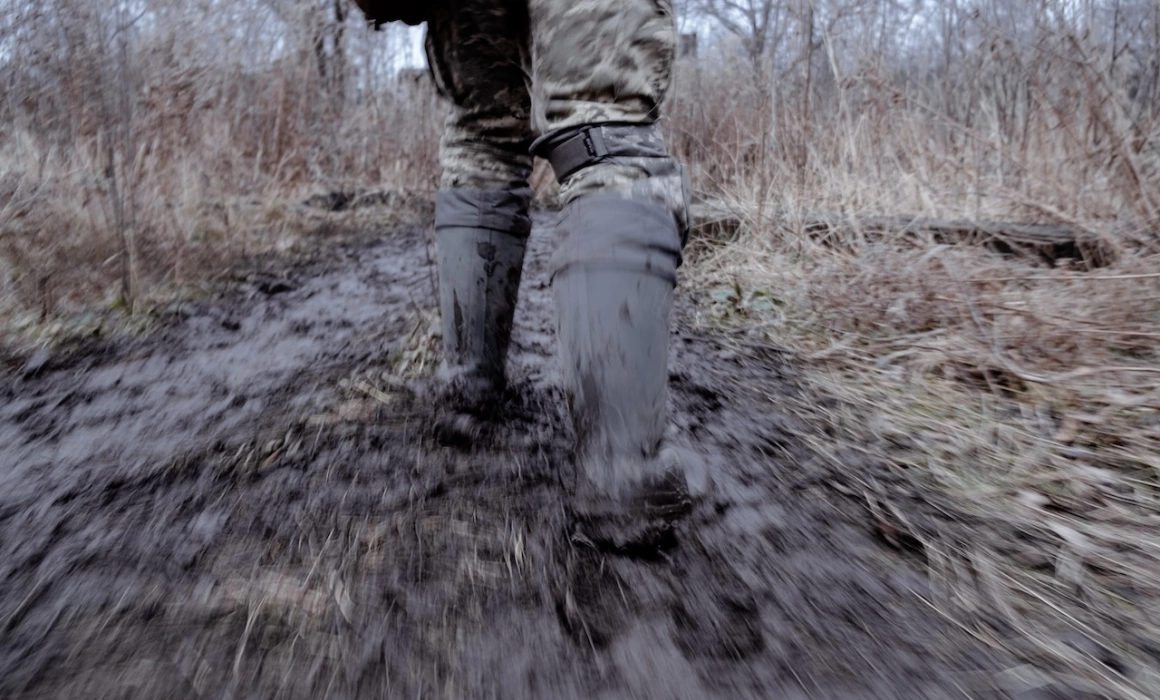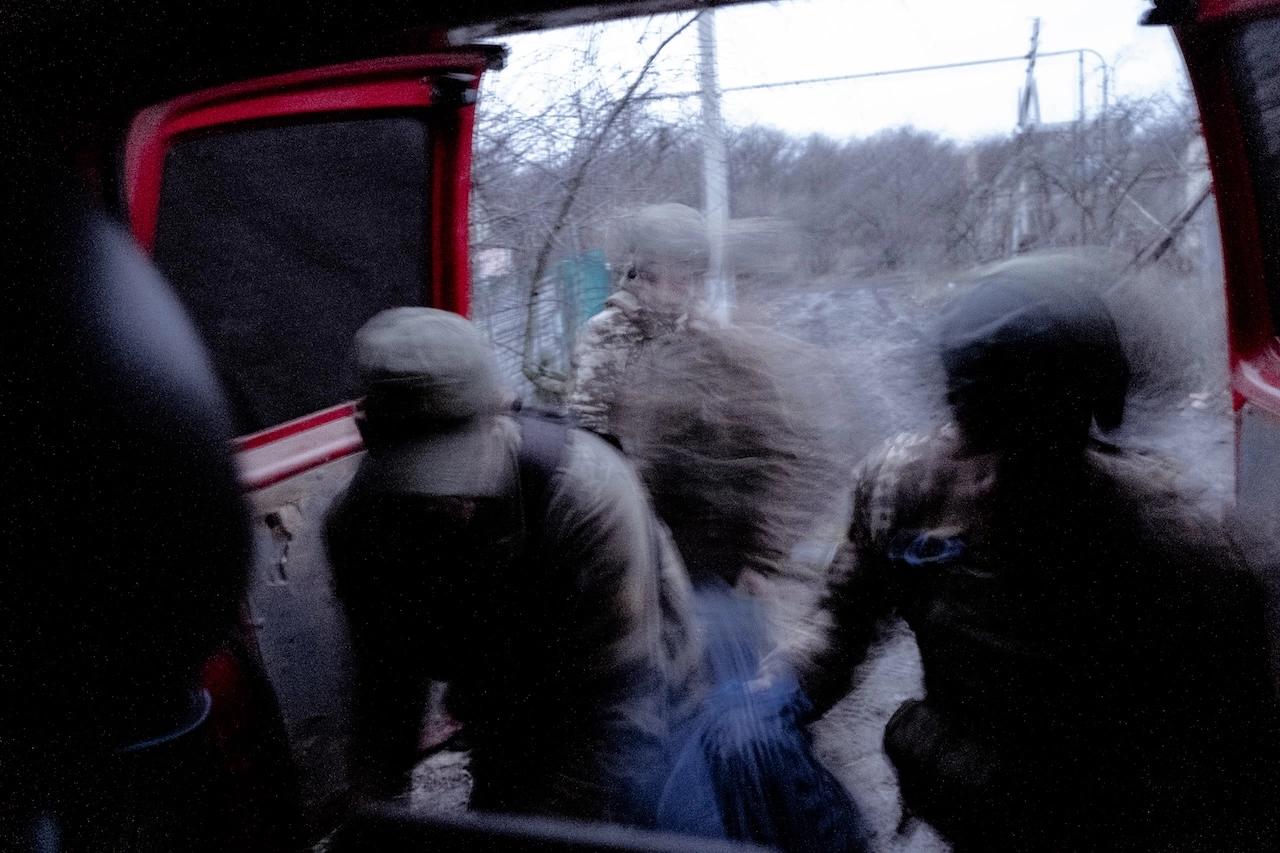Avdiivka is a town a bit north of Donetsk, in eastern Ukraine. Before the war, over 30,000 people lived there; as of October last year, fewer than 1,000 remained, most of them underground. After the 2014 beginning of the Donbass war, the city was the target of a full-scale battle in 2017. Only 5,000 people remained in the city at the time, but as the fighting subsided, residents returned.
Since the start of the full-scale invasion in 2022, Russia has been stubbornly trying to capture Avdiivka, although it had suffered important losses of military personnel and equipment. The city, although under Ukrainian control, has been declared completely destroyed. The young journalist Larisa Kalik accompanied the Ukrainian military there in late November 2023.
I
We wake up at three o'clock in the morning - the mortars leave for the combat position in half an hour. The sky is lit with stars, and surprisingly it’s not too cold. End of November. Soldiers get into two cars, wearing bulletproof vests, helmets, and carrying rifles and walkie-talkies.
The driver of our car clearly does not like traveling — on the way he says several times: “God bless us.” On the roads, occasionally there are cars of other military personnel who are also going on a mission or returning from a position.
Part of our route is safe until we reach the road leading directly to Bakhmut. In the car, where until this moment the soldiers were talking and joking, it gets quiet. Certain potholes on the road and broken cars become landmarks for navigation. Our path was illuminated not only by headlights, but also by a flare that hovered in the starry sky like a large yellow moon. It seems that the Ukrainians launched it to help those who were determined to storm enemy positions.
The cars stop, we quickly get out, and soldiers from the previous shift sit in our places. Each shift lasts several days, and the military is forced to live in the cold and in the swamp until they are replaced.
I follow the military man — he shows the way with a red flashlight, and I feel the weight of my boots becoming heavier with every step. Feet slip on the wet ground, and gradually attention changes focus from sight to hearing — shells are whistling and exploding everywhere. We are several kilometers from the front line. I go down to the blindage.
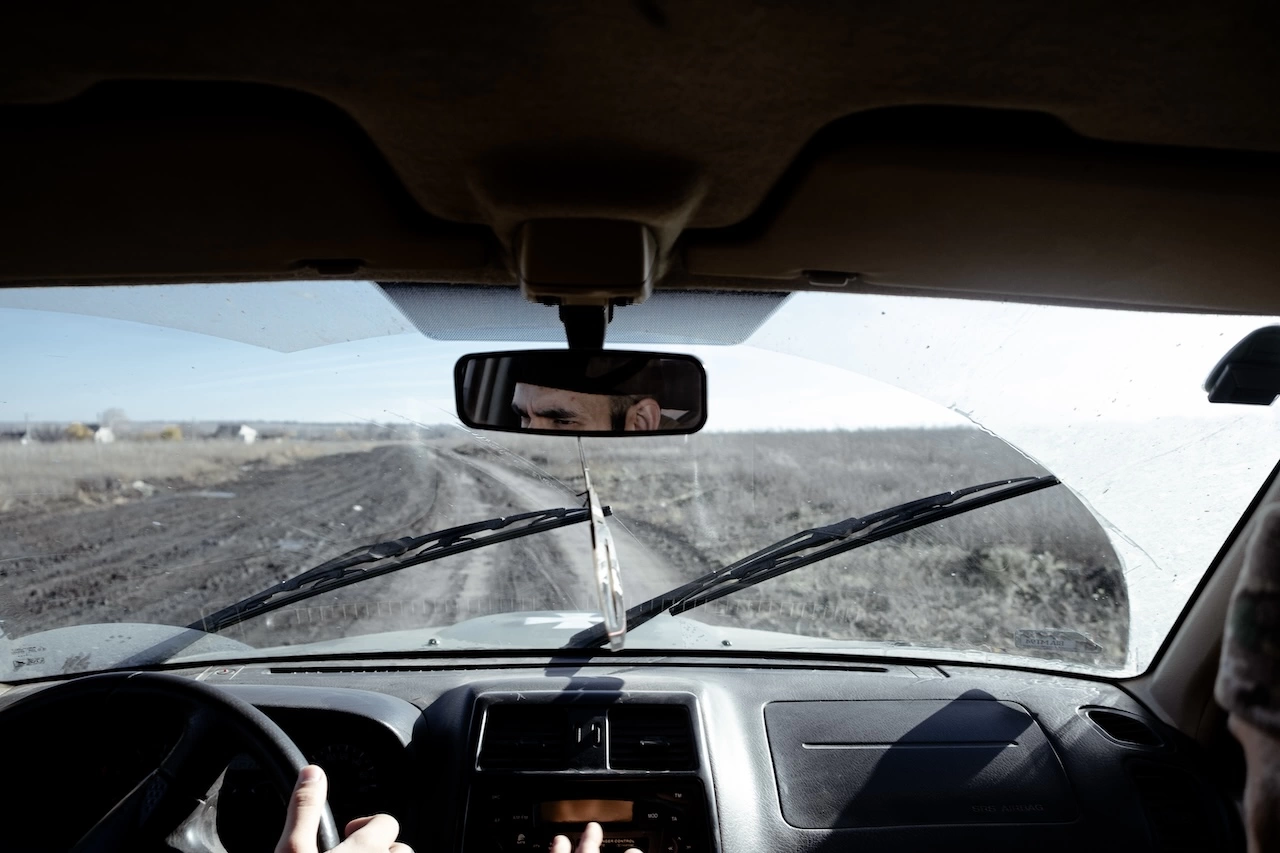
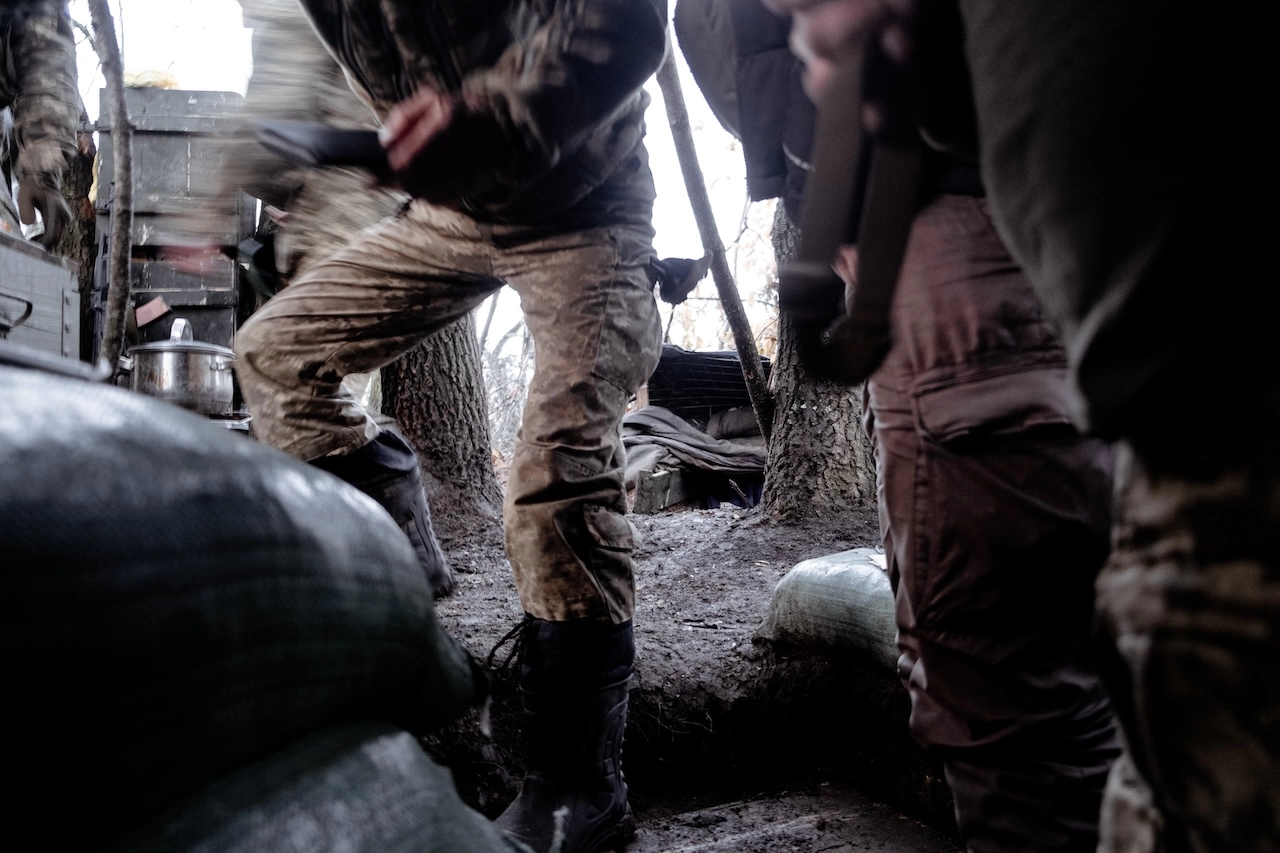
II
The command post blindage is a dug hole equipped for two people. It is impossible to stand up to full height in the dugout. The walls are covered with film, boards are attached on top. When a shell lands nearby, dirt falls on our heads. On the floor there are pallets that replace the bed. Many soldiers have back pain from the hard wood they sleep on, the heavy body armor they wear, and the shells they have to load into the mortar. There are mice running around everywhere. At night they crawl over sleeping people, during the day they try to eat everything. Mice chew through wires, sleeping bags, boxes of supplies, any food and even clothes. In this war, no army can win — mice will defeat people.
While the new shift is studying the data for the last few days, conversations from neighboring positions are heard on the radio.
“We need a stretcher, we won’t be able to carry him by ourselves.”
“Guys, try to bring him to the evacuation point, and they will help you there.”
“He is seriously wounded, if we don’t help him, no one will help him.”
“What kind of injury does he have?
“Two legs were torn off. One died immediately.”
The shift commander flips through the notepad and clarifies the coordinate data. For him, such conversations on the radio became the same background noise as the constant explosions around him.
The command post receives orders and coordinates for the strike. Using a complex set of numbers, the commander needs to make calculations for the mortar, which must hit the target.
When the command comes, four people go to the mortar — two bring the shell, the third loads it into the mortar, the last one points the mortar at the target and pulls the wire so that the descent occurs. The explosion of an 82 mm mortar, if your ears are not protected by special headphones, can cause you to stop hearing for a short time and experience a headache — a whistling sound lingers in your ears, which goes away over time. Later, aerial reconnaissance reports how accurate the strike was. If necessary, the coordinates are adjusted, and the first projectile is followed by another one.
We return to the blindage, I again listen to conversations from the radio. The man who lost two legs died a few hours later. They didn't have time to save him.
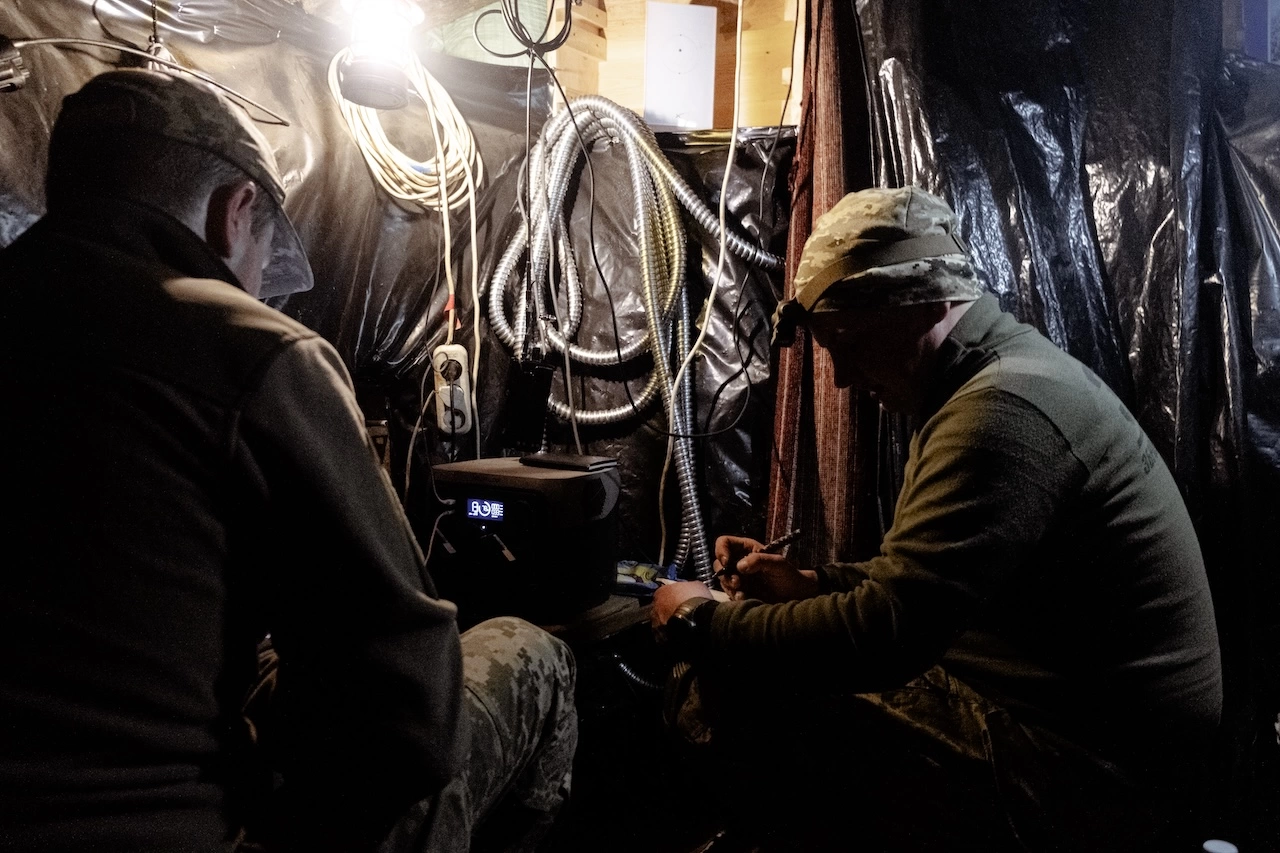
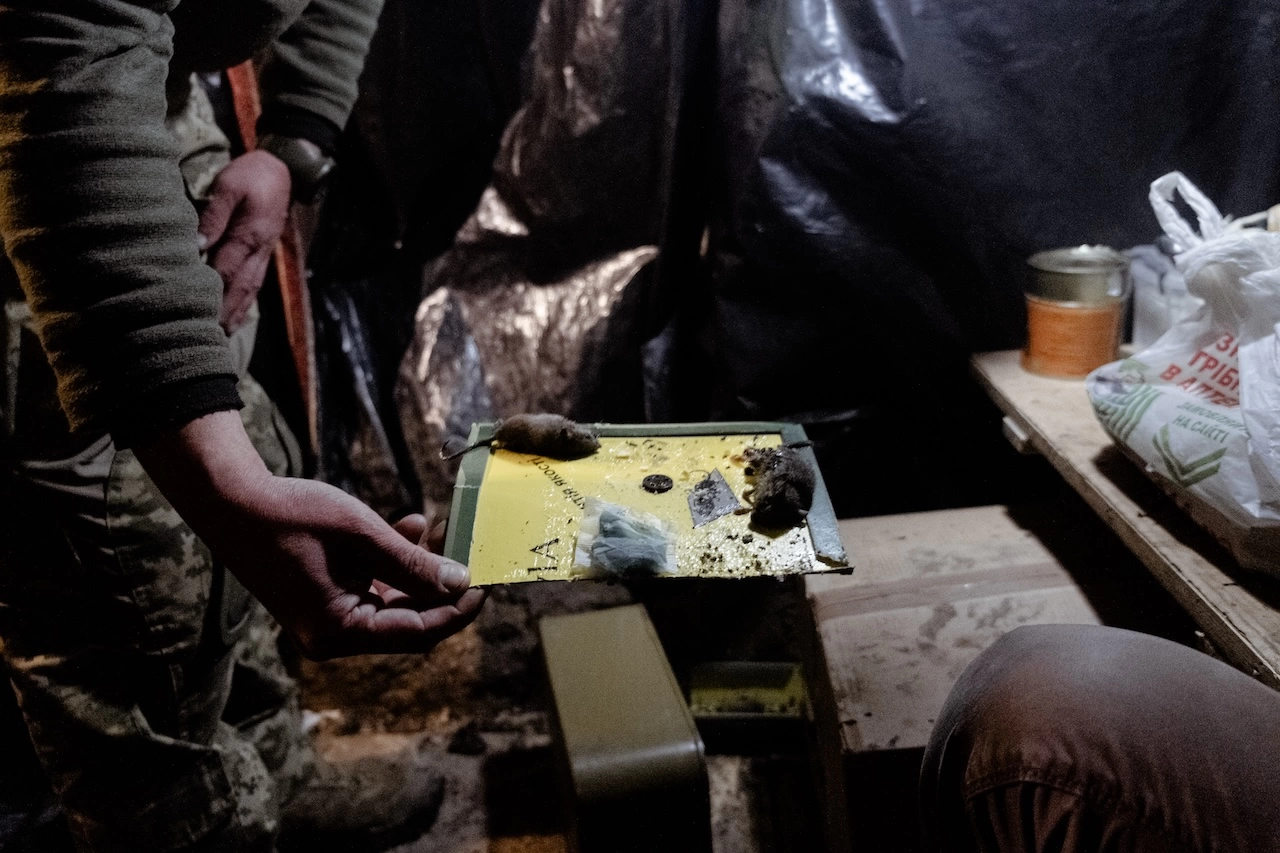
III
The entire shift gathered at the main blindage. Later, the cold sun came out and illuminated the soldiers, and illuminated the steam from their mouths, and the heat was visible from the hot cups of coffee. The cigarette smoke resembled fog.
Mitya, one of those who aims the mortar at the target, is young — he is 27 years old. He was mobilized for service. I asked what he did before the war. Mitya, like many others, had no military experience at all before the war began. He was a builder and always did manual labor. The ease with which he works next to the mortar shows that his hands are not afraid of any work.
Until the command for battle is received, the soldiers can rest — someone talks to their wife on the phone, someone watches a video. From the radio in the dugout you can hear how the soldier who helped evacuate the wounded was himself in danger. A Russian drone began to fly above him, and our soldier had nowhere to hide.
“Try to find at least a small hole and stay there for a while.”
“The drone is flying right above me now. Have someone knock it down.”
“We will help you, the main thing is not to panic.”
“I'm not panicking. Everything will be Ukraine.”
Whose voice this was and what happened to it afterwards, we don’t know. This man tried to save someone who had lost two legs and helped evacuate the body of the deceased. And at the most terrible moment, when the enemy drone was over his head, he continued to see the meaning of why he was at war. He is here for Ukraine.
A few days later it started to rain and everything was flooded. Afterwards frosts set in, snow came and soon melted again. In such weather, not everyone will leave the house in their city. People live like this among forests and fields, fighting and fighting for freedom.
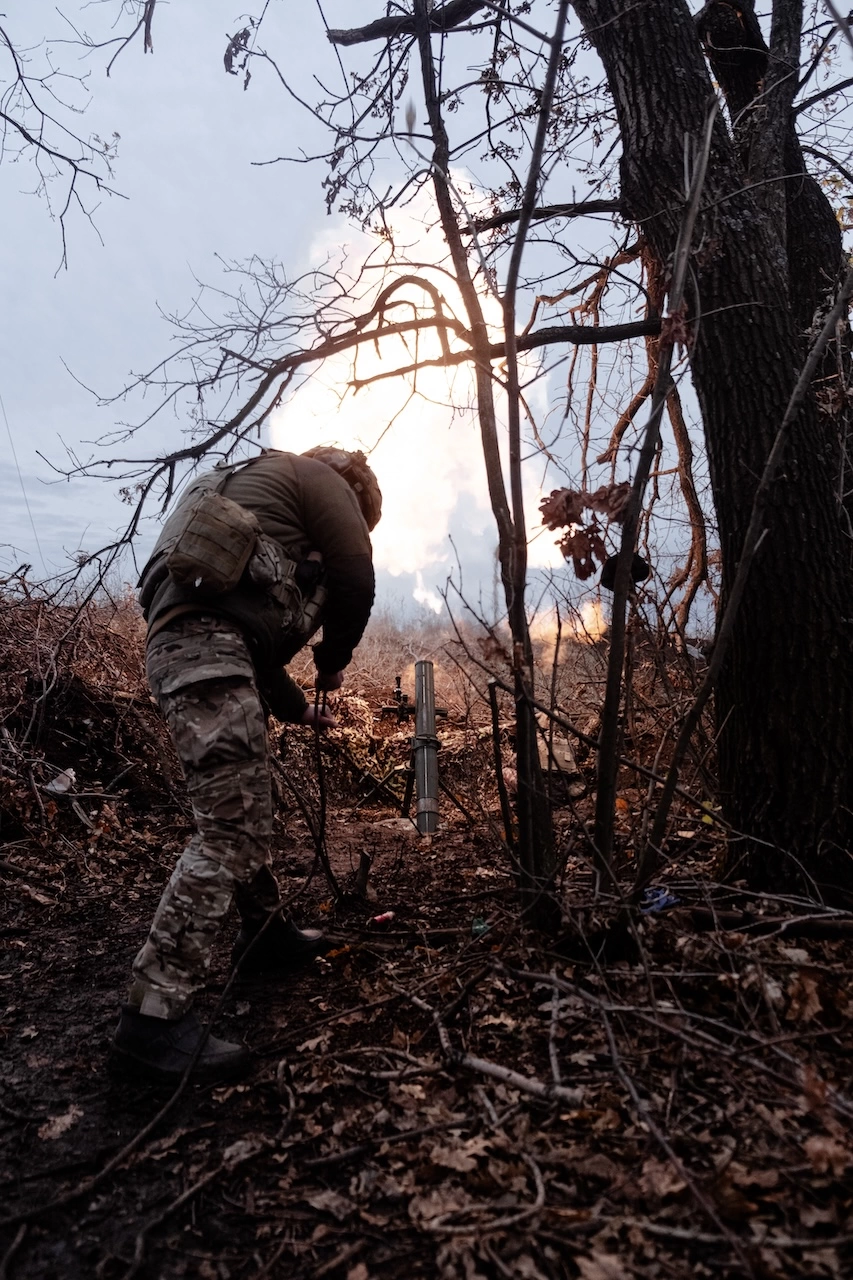
IV
With artillerymen working with the 100mm anti-tank gun, we are even closer to the front. We arrived in the afternoon — it gets dark early, and we need to get to the position during that period of time when the light is gray. It is still possible to drive without headlights, and the car is less noticeable to drones. I'm going with Daniil, Svyat, Max, Panda and Yaroslav.
The village street was completely destroyed — like everywhere else before the war, people lived here. But now, instead of warm light from the windows, there is darkness and the creaking of the open door in the wind. The soldiers occupied one of the moderately damaged houses. During those hours when the situation is relatively calm, the military is in the house. When heavy shelling begins, we need to go down to the basement. Constant whistling overhead, explosions and unpredictability — this forces the body to produce that adrenaline that helps mask fear.
That evening, when we arrived at the position, was the day of remembrance of the victims of the Holodomor. On this day, we should light a candle in the window as a sign that people who died of hunger are not forgotten. We lit a “trench” candle — paraffin or wax is poured into a tin jar, and cardboard is used instead of a wick. The candle burns for several hours and the military uses it to warm their hands. The light in the window of an abandoned house created a feeling of continuous grief. From the Holodomor, all the wars and revolutions, the struggle for independence — from everything a thread stretches to us, to those who continue to fight for freedom and die for it.
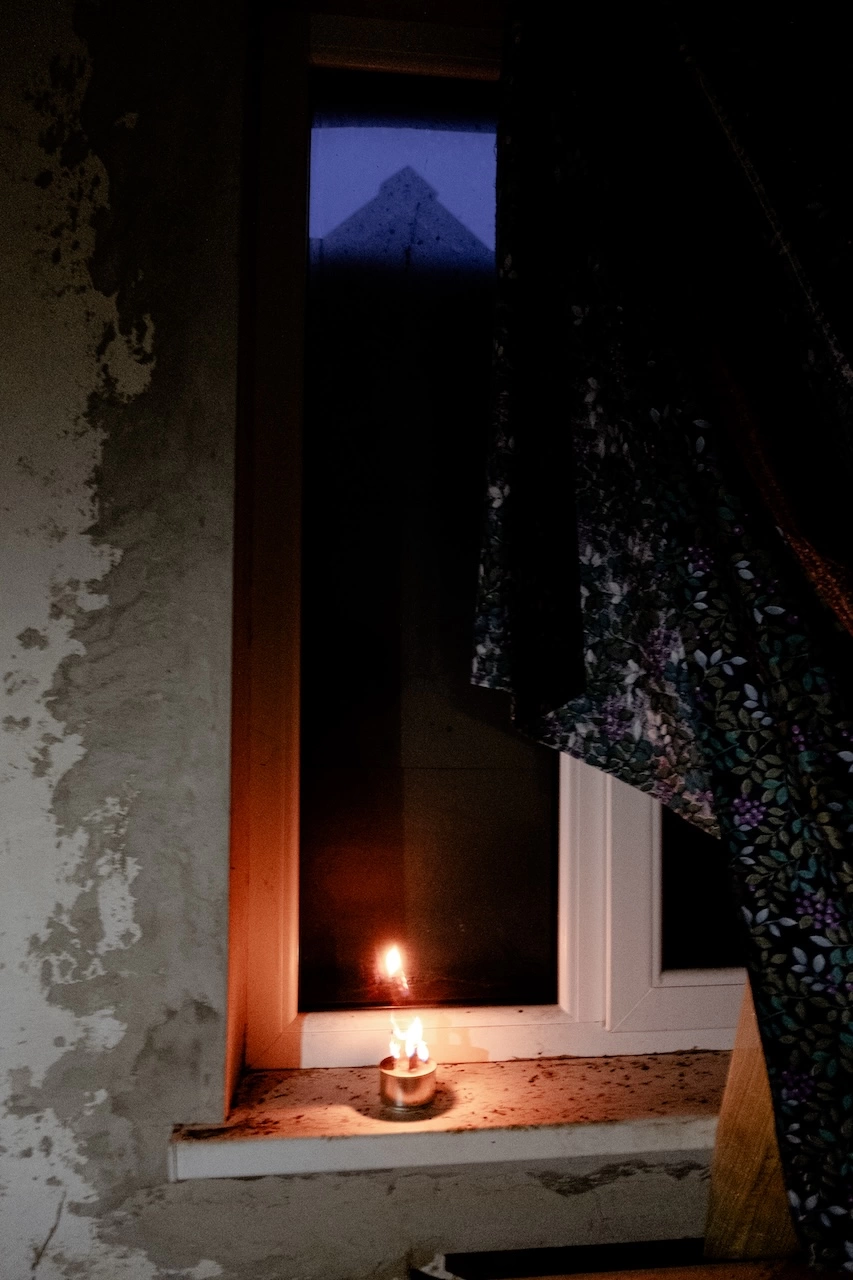
It was raining outside, and I went out of the house into the street — although the sky was overcast with clouds, there was a full moon behind them. That's why it was light even late in the evening. Neither explosions, nor the whistling of shells, nothing is more frightening than complete desertion where people should be. This sight shackled me, and for the first time in a long time I felt real fear, anxiety, and powerlessness. It was a joy to return to a crippled house where there was light, a small heater, and my friends.
But calm at the front could not last long, and at the command “to fight,” everyone, with the exception of the commander, ran to the gun. We walked along the road, slippery from the rain, to where it was reliably camouflaged. Aim the gun and load shells — everything must happen in a matter of minutes, otherwise they may be late. And then they were too late — there was a moving target, possibly a heavy armored vehicle. But the target moved and they had to return without firing a shot.
The commander of the gun is a serious and responsible person. His name is Daniil. His responsibilities include coordinating all work at the combat position. He speaks with restraint, sometimes sternly, and always jokes kindly. A full-scale war found him serving in the army — and he was immediately transferred from the army to a combat brigade. From a young boy he has grown into a mature man — he is only 22 years old.
In the rain and wind, the front calms down a bit — making it difficult for drones and projectiles to fly. We talk until three o'clock in the morning, listen to the radio, play chess. Almost all food supplies ran out in the evening, and now the one who wins the game will receive tea and candy. With a score of 2:1 I lose to Daniil, and he, with his characteristic kindness, shares a cup of tea with me.
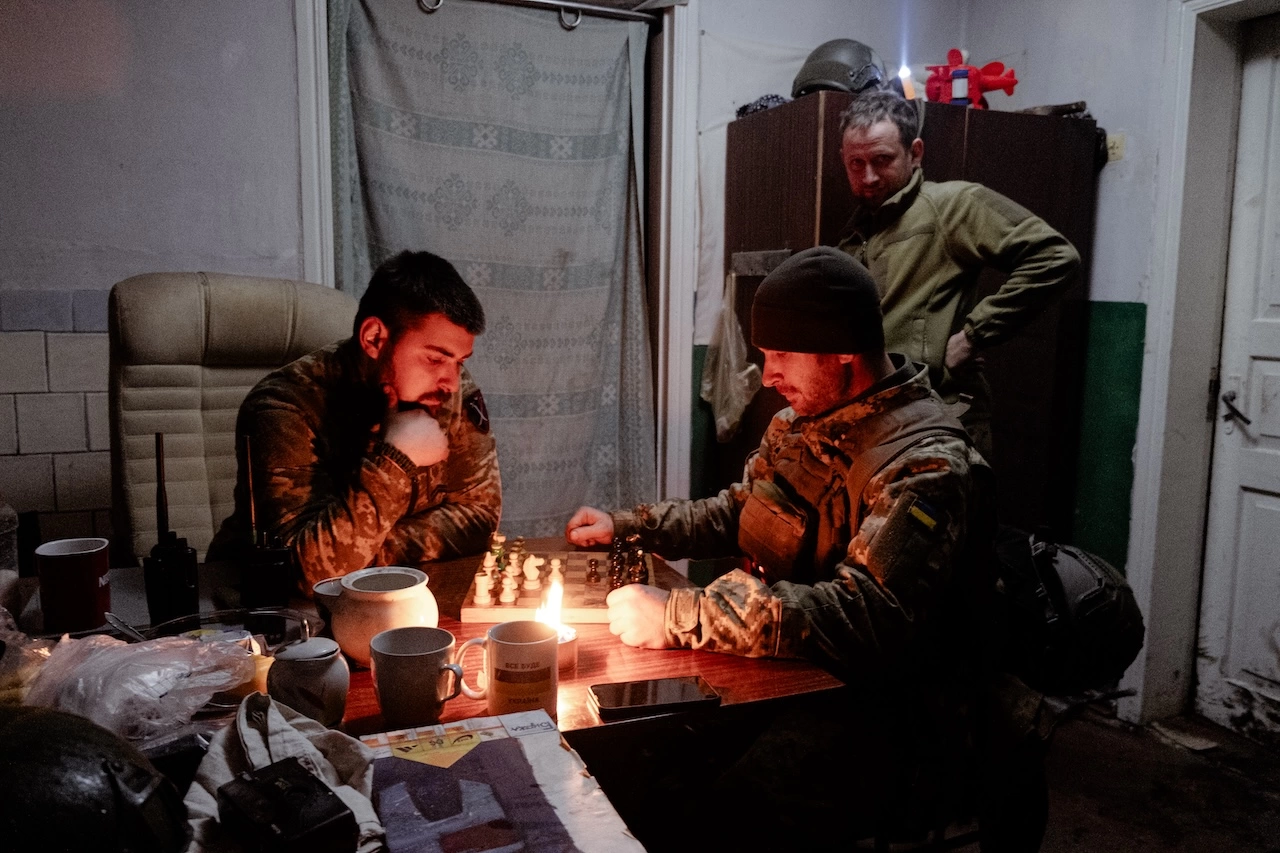
I found a chessboard in the next room. On the damp floor, I also find a box from the board game Monopoly. But instead of a game, there are old slide photographs inside. People left in a hurry and did not take the most important thing — family memory.
Panda remains on night duty. Svyat remains to sleep in the house, and everyone else goes down to the basement. In a small room where there are two bunk beds - they take up almost all the free space. I climb into my sleeping bag and lie down on the damp mattress. Someone covers me with a blanket. It smells like mice and gas — there is a gas burner in the basement, and I joke that it will be awkward if we get carbon monoxide at the front and die for such a stupid reason. But everything turns out fine in the end. I sleep soundly, not hearing explosions or the voices on the radio.
V
I wake up to the sound of my alarm clock — without sunlight it is impossible to understand what time it is. The smell of gas has become familiar and unnoticeable. I put on a bulletproof vest and helmet, and put on tactical boots to go outside and enter the house. I wash my face and brush my teeth using bottled drinking water. I comb my hair and apply cream to my face. I am the first woman in the house since people have stopped living here.
In daylight I look around and notice that it was a nice house — three rooms, a large kitchen with everything you need and a cozy stove in the corner. Bathroom. Big windows. A family lived here — there is a scooter in the hallway, toys in the room. And on the walls in the basement there are chalk drawings. Apparently, when the war escalated, people hid with the child in the basement and tried to distract him so that he would not be afraid.
I look at the photographs I found yesterday — children going to school, someone harvesting, a photograph from a funeral. Vacation at sea, photograph next to a monument in an unfamiliar city. I want to save these photographs and try to find the people to whom they belonged. This house will soon collapse, and mice and humidity will destroy the remains of what was most important. There is a sheet of paper on the floor in the room. I unfold it, and see the first lines: “Darling, I miss you and think about you all the time...”. I do not continue to read this letter, it is personal and intimate. To prevent it from getting damaged, I put it in a plastic bag and close it tightly to give the letter a chance to survive.
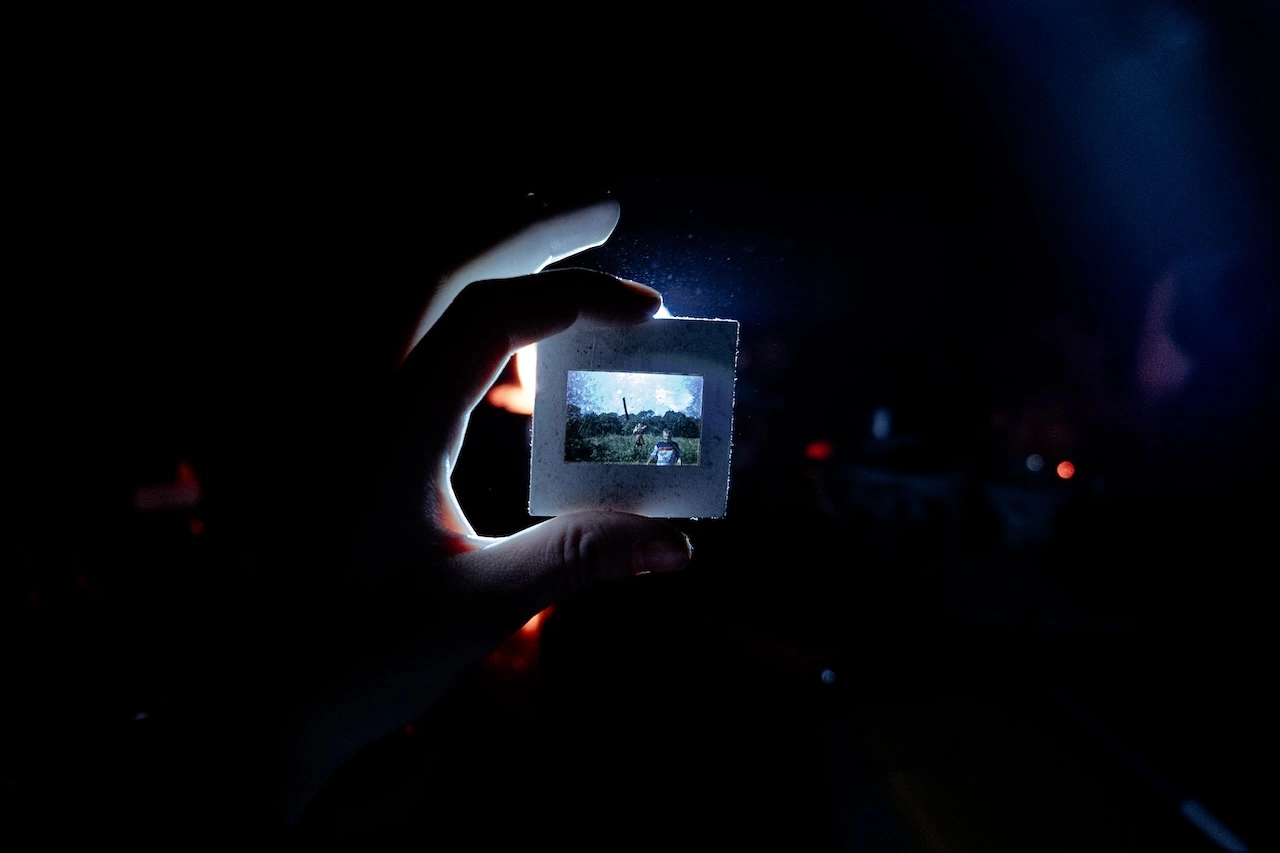
VI
The last person who decided to stay on this street lives in the neighboring house. There are several kilometers between the front and us. I knock on his gate, and soon he opens it for me, walking slowly. His dog barks at me in fear and shakes from the sound of explosions. The cat that keeps the old man company does not react to the noise.
Alexander is glad of my company. He doesn't get to talk to people often. In addition to a cat and a dog, he has pigeons, a radio and a TV. The first thing he decides to tell about himself is that he is a collector. He collects radios, tape recorders, and stereo systems. From the Stalin era, he shows off his player to me — he inserts a disc and the music starts playing. His garage resembles a souvenir shop, and loud music hides the explosions, and it’s like we’re in a city where there is light, people, joy.
Volunteers brought him a generator, a lot of batteries, food and water. He doesn’t want to leave, and this is a common occurrence.
“I don’t want to depend on anyone. I want to live in my own house. When I hear a shell whistling, I close my eyes and ask God to let it fly past me. So far my house is intact, but there are several hits in the garden and in front of the gate. And there are those shells that did not explode, I also collect them.”
He turns on the TV for me, and all the channels are Russian. He says that he does not listen to propaganda, but watches films and TV series. And he hears the news on the radio. He is seventy years old, and he jokes, talks about his youth and what life was like before the war - before it began almost ten years ago.
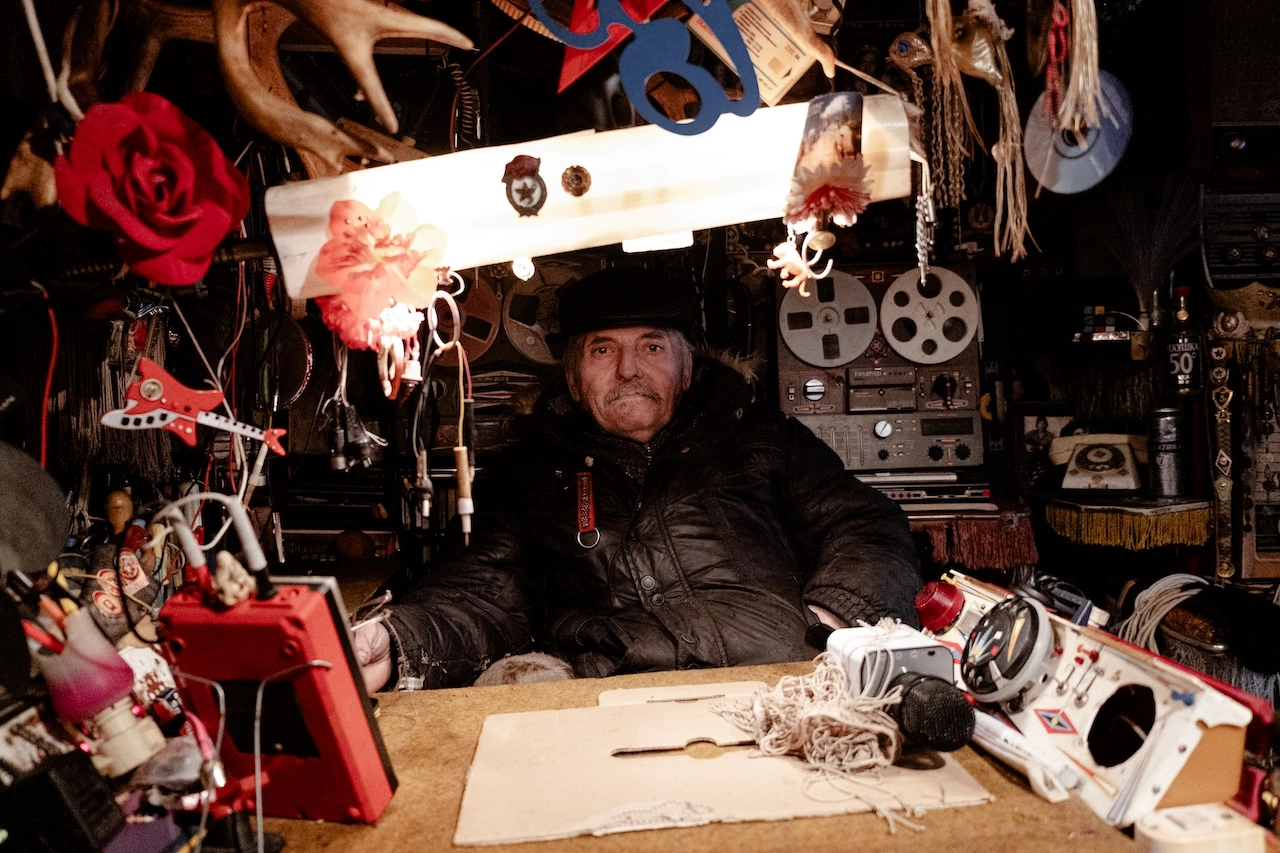
He brought fish from the destroyed Liman — there are beautiful lakes near the city, and he went there with his friend for fishing. Now instead of nature there are mines and destroyed life. In Bakhmut he walked, visited friends and colleagues. He loved to walk along Rose Alley - Bakhmut was the city of roses. Alexander does not have a phone, and he does not know what the completely destroyed city looks like now. I tell him that not a single house in the city has survived and the Russians have turned absolutely everything in the city into ruins. When I say this, I feel the same way people feel when they announce the death of someone close to them.
Alexander has no family. His son died and his wife died. Portraits of his distant relatives, old black and white photographs, hang on the wall — he greets them. He speaks pure Ukrainian, and this is another solid proof of the lies Russian propaganda is broadcasting about the “protection” of the Russian-speaking population of Donbas.
He dreams of an electric saw to cut broken trees into firewood for the cold and snowy winter. Which he will spend alone under Russian fire.
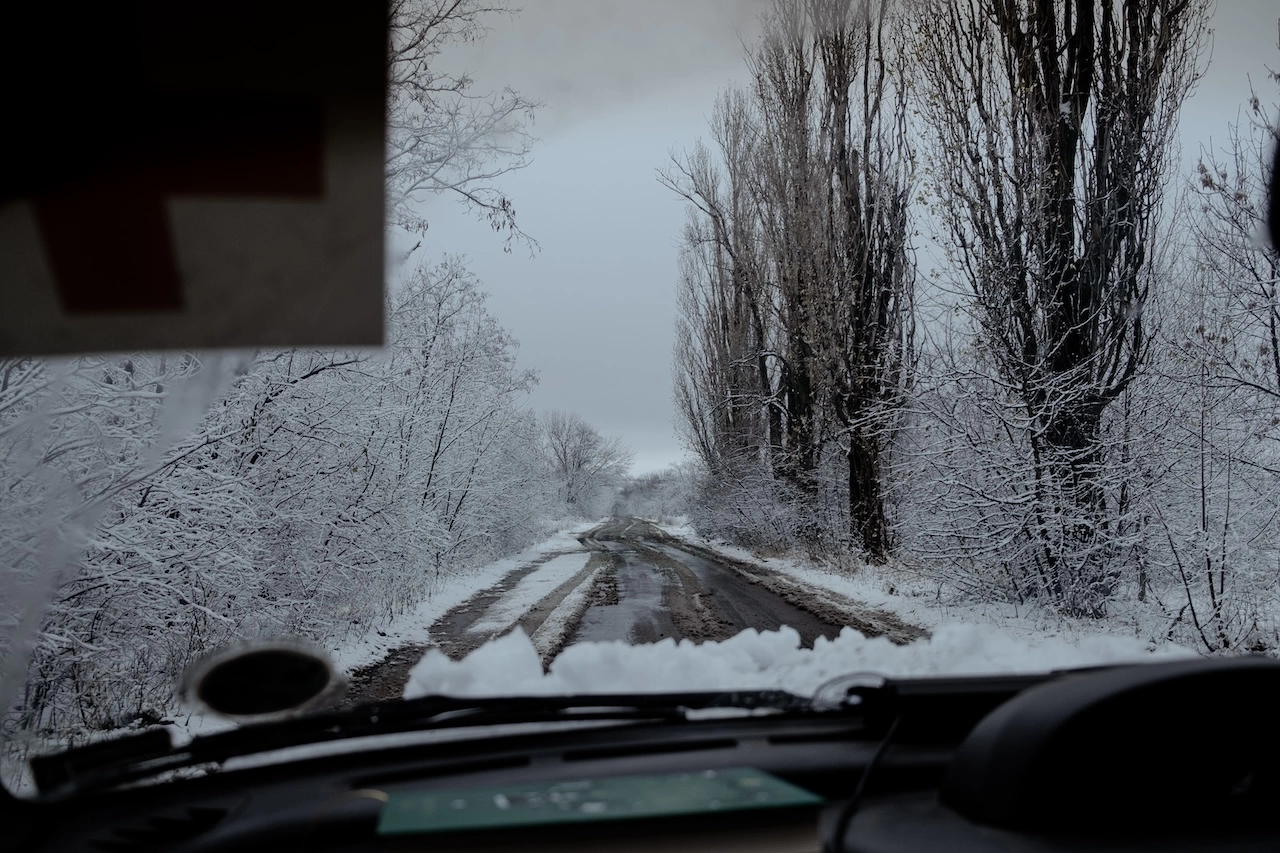
VII
After talking with Alexander, I return to my soldiers. On the way I meet feral and scared cats who are afraid to approach, afraid to move. The constant terrible noise drove the animals to madness.
Someone in the house continues to play chess. Soon Daniil receives the coordinates, and we again go to the position — our feet slip in the mud, all our clothes are splashed with dirty water. Everyone is busy with their responsibilities. Empty shell casings are stacked next to the gun position. There are many of them, they are collected in a heap and will lie there even after the war, when a layer of moss, grass and young trees covers gray metal. People won't be coming back here anytime soon.
A shell flies out of a six-meter barrel with fire, thunder and smoke. Everything happens instantly, and the blast wave feels like a sharp gust of wind. The shell flies to a target located in Russian-occupied Bakhmut.
We return, and I hear our artillery sounding among the incoming blows. I see the point in why we are here — to protect our land. I don't understand why they came here.
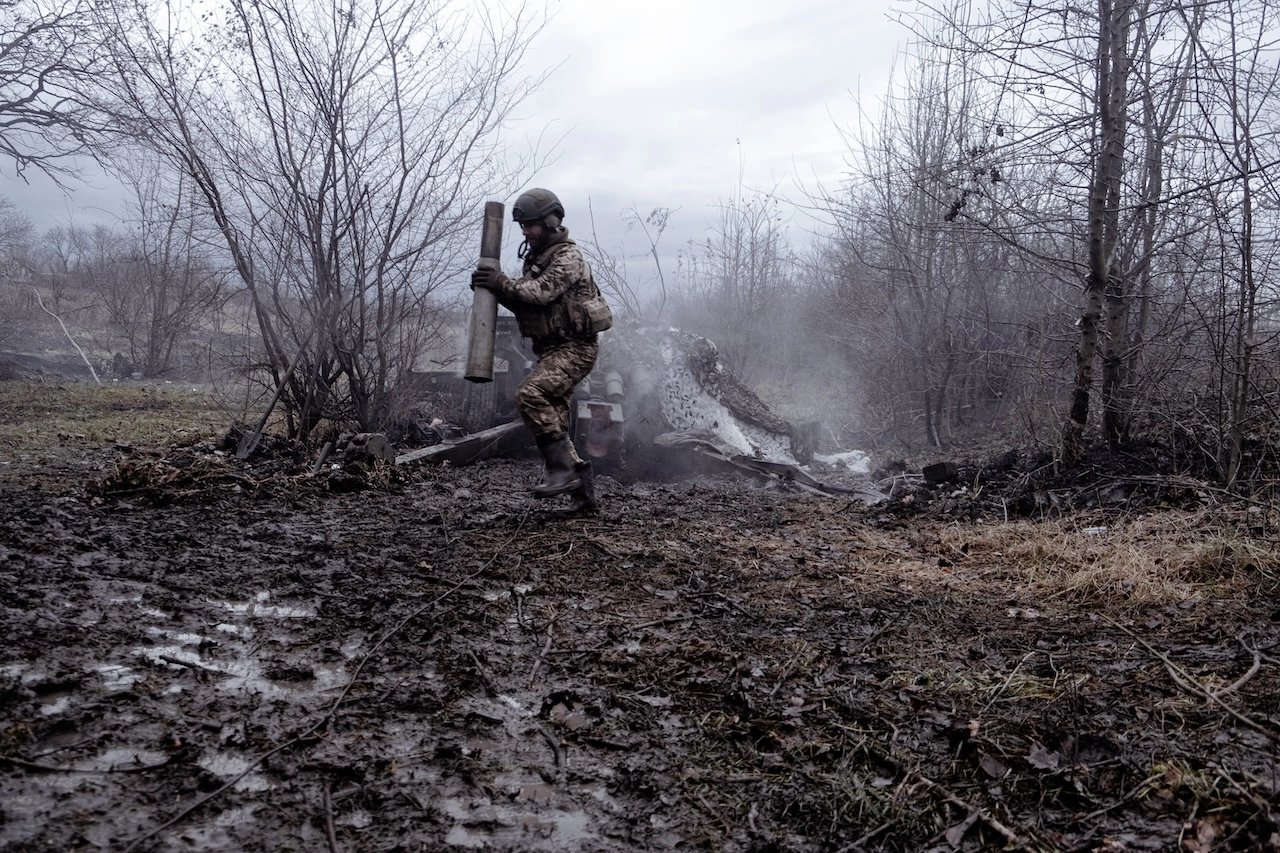
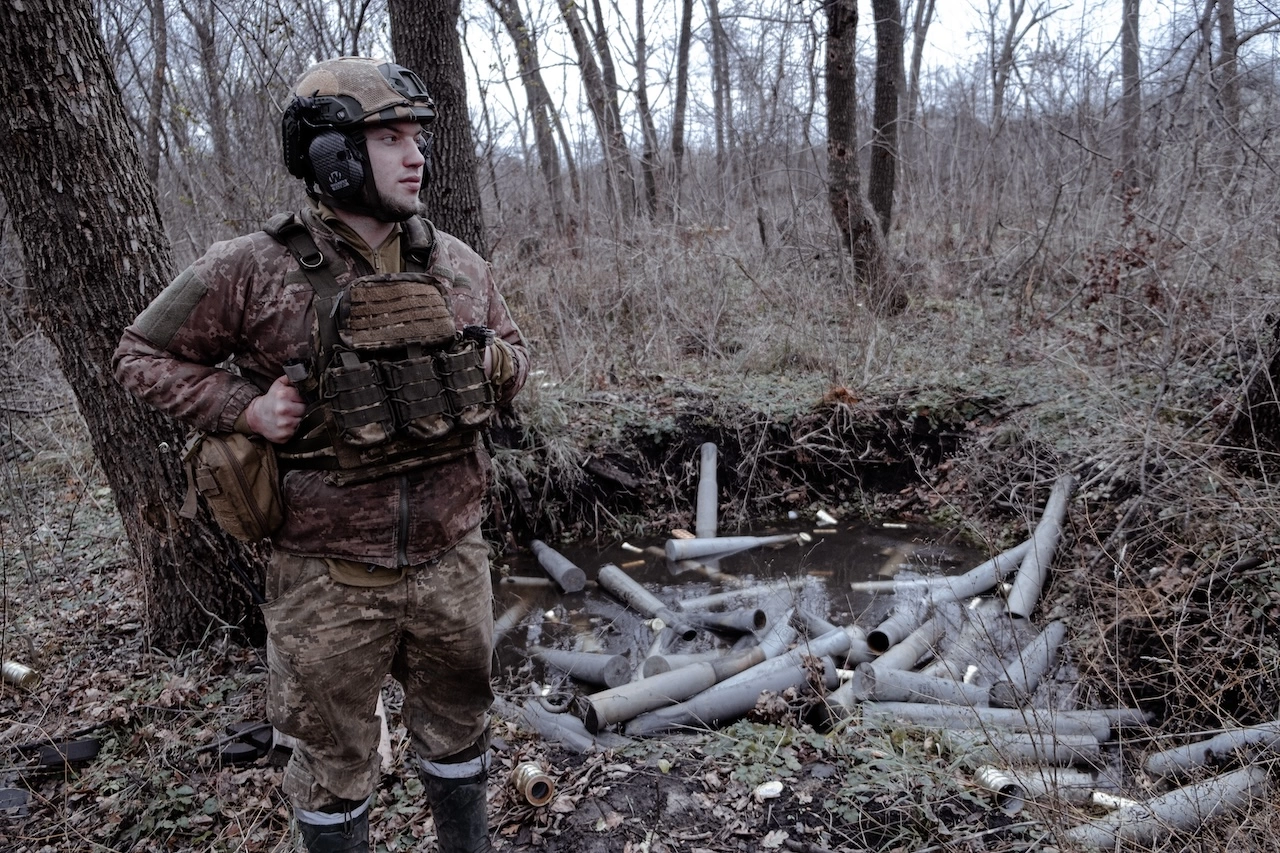
Only Daniil was in the house. As we entered, the shelling from outside intensified — and the sound of glass clinking made the approaching attacks more and more obvious. The windows and the house shook, and we all went down to the basement. One of the explosions that thundered above us while we were in the shelter left our ears blocked. I looked back at the walls and ceiling of the basement, and it became obvious that if there was an accurate hit in the house, it would be almost impossible to get out from under the rubble. What force forces people to create such powerful weapons?
Soon the next shift arrived. Everything happened the same way as upon arrival at the position, only in reverse order — just like in the movies. We got into the car, and in the twilight light, without headlights, we drove quickly. On the road, further from the front, we met a hare, and then a great white owl. They greeted the approach of the car calmly and politely stepped aside, giving us the opportunity to return home sooner.
The Romanian language version of this text is available here.
